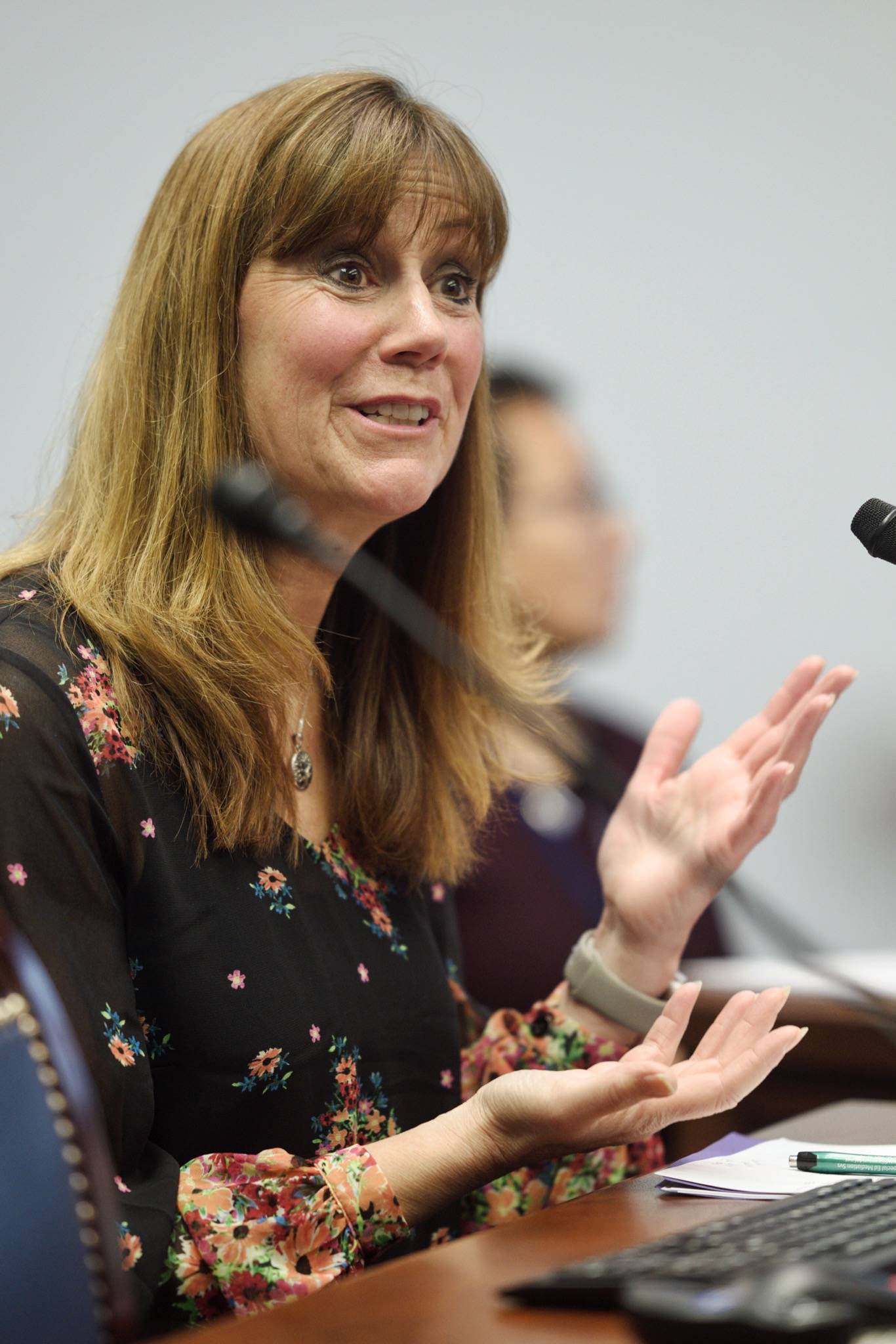The public and senators had a lot to say about a bill that could expand early education programs in Alaska.
A Senate Education Committee meeting Tuesday morning focused on providing time for public testimony on Senate Bill 6, which would allow schools to apply for three-year education development grants over the course of five years. At the end of the meeting, the bill was set aside for further consideration.
“Decades of research demonstrates pre-K makes a difference,” said Stephanie Berglund, CEO for thread, a nonprofit that works to increase access to early care and education. “We can invest now or pay more later.”
The proposed bill requests about $3.4 million for fiscal year 2020 for pre-K grants and $361,600 in that same period for education support and administrative services, according to the bill’s fiscal notes.
Others present who spoke favorably of expanding early childhood education included City and Borough of Juneau School District Superintendent Bridget Weiss, Executive Director for Best Beginnings Abbe Hensley, National Education Association-Alaska President Tim Parker and Sen. Tom Begich, D-Anchorage, who co-sponsored SB 6.
[City votes against funding pre-K pilot program]
Parker said strong early childhood education is part of the promise implicit in the Alaska Department of Education & Early Development’s name, which is different from what many other states call a department of education.
“We’re the Department of Education & Early Development,” Parker said. “This bill is pushing us in this direction. We should lean into that promise.”
Berglund, Begich, Hensley, Weiss, Parker and members of the public said strong pre-K programs have positive effects.
They said such programs are tied to readiness for kindergarten, improved academic performance, higher high school graduation rates, lower incarceration rates and higher future earning.
Others who gave testimony included educators and grandparents who spoke positively about pre-K programs.
However, not everyone who spoke was in favor of the bill.
David Nees of Anchorage, who called to offer testimony, said the bill had some good ideas, but he would like to see state-specific data regarding the effectiveness of pre-K programs.
“You have had many thousands of children go through the program, but you have no data,” he said.
Caller David Boyle urged committee members to do their own research and said the data provided was cherry picked to depict pre-K in a positive light and largely repudiated the idea that pre-K gives students an advantage.
Boyle is listed as a senior education policy fellow on the Alaska Policy Forum website, but said he was offering testimony on his own behalf.
He cited a recent Vanderbilt University study that showed pre-K programs do have early positive effects but students who were not enrolled in pre-K eventually catch up to their peers.
He also said pre-K programs insert the state into a role that should be filled by parents and suggested legislators consider a pilot program that would get parents more involved in early childhood education.
“I have faith in parents, and that they know their kids better than the government does,” Boyle said.
After that testimony wrapped, Begich countered by saying there are many studies that show quality pre-K advantages do not fade, and he similarly recommended committee members research the matter.
“No cherry picking here, Mr. Chairman, just the facts,” Begich said to Sen. Gary Stevens, R-Kodiak, chairman for the committee.
During Weiss’ testimony, she spoke strongly in favor of pre-K and child care.
[First University of Alaska Southeast Student participates in scholarship program]
She offered anecdotal evidence that such programs make a difference and said lack of child care is a concern in Juneau.
Weiss is part of a CBJ Assembly Childcare Committee examining that matter.
Additionally, Weiss said she hopes the district will be able to put together Juneau-specific data about the impact of pre-K programs over summer.
She also cautioned educators to keep in mind there are a large number of factors that impact education statistics.
“There are so many variables,” Weiss said. “Education data is seldom scientific.”
• Contact Ben Hohenstatt at (907)523-2243 or bhohenstatt@juneauempire.com. Follow him on Twitter at @BenHohenstatt.

